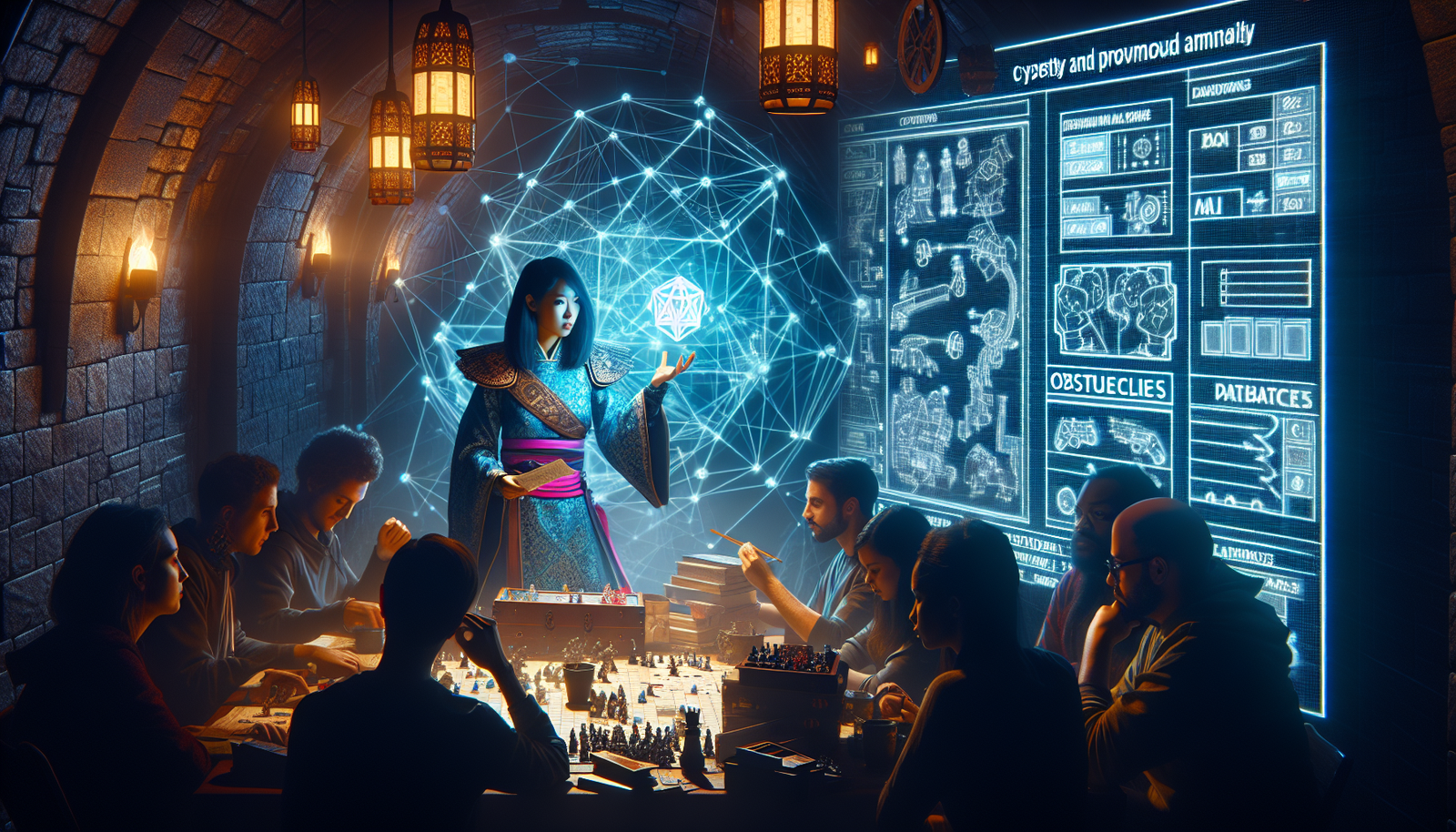A DM AI incursion into the Critical Role universe reveals unsuspected cracks in the community dynamic. This unprecedented experimentation raises questions about creative integrity and the ethical consequences inherent in the use of artificial intelligence. Debates about the authenticity of works and the consent of creators are intensifying, forcing enthusiasts to reconsider their engagement with these emerging technologies. The implications of this experiment transcend mere entertainment, touching on fundamental issues related to interactive storytelling and the sustainability of shared narratives.
An innovative experience with an AI Dungeon Master
A recent academic publication has drawn attention to the controversial discussion surrounding artificial intelligence in the realm of role-playing games. This work, conducted by graduate student Pavlos Sakellaridis, highlighted the capabilities of an AI Dungeon Master, based on a dataset derived from the D&D module The Sunless Citadel and transcripts from Critical Role.
The experience of creating an AI Dungeon Master
Sakellaridis’s project was designed to assess ChatGPT’s ability to produce adventures while maintaining narrative coherence and fostering player engagement. This initiative raised questions about the ambiguous nature of fan works, related to the consent required for training language models.
For this experiment, Sakellaridis used the module The Sunless Citadel as a reference file to extract descriptions of characters, locations, and pre-written dialogues. Transcriptions from Critical Role, drawn from the Critical Role Dungeons and Dragons Dataset, enriched this study with nearly 160 episodes.
Consent and copyright issues
This approach raises concerns regarding the use of works from the fan community. Most transcriptions have been done by volunteers. The question of consent becomes central when it comes to exploiting materials to train AI models.
The sessions of Critical Role find themselves in a delicate legal position as legal battles continue to emerge over the use of protected material for AI. In this respect, the Kryogenix platform, which archived these transcriptions, was unreachable at one point, compromising access to an essential resource for research.
Divergent opinions on the role of AI in the gaming field
The role-playing game sector, and more broadly the board game industry, finds itself at the heart of a debate on the use of AI. Critics point to the environmental impact of such technologies, as well as their roots in often exploited labor. This conversation has gained momentum as companies like Wizards of the Coast have been accused of integrating AI elements into their products. Although the company promised not to use AI for its illustrations, the enigmatic remarks of CEO Chris Cocks regarding AI-related projects fuel concerns among fans.
Community reaction and the future of artificial intelligence
Critical Role has taken a firm stance regarding AI, stating bluntly ” Fuck AI ” during a recent episode. This phrase illustrates a clear alignment between the series’ identity and its beliefs regarding technological innovation.
Debates within the role-playing community are symptomatic of an ongoing evolution. The depth of interaction, the pursuit of creativity, and the protection of copyright are challenges to be addressed as artificial intelligence continues to integrate into areas such as live role-playing. Future developments of these technologies will be scrutinized closely as the community questions the ethics and limits of AI.
Frequently asked questions
What are the main weaknesses observed in the Critical Role community during an experience with an AI Dungeon Master?
The main weaknesses include an excessive reliance on traditional storytelling, challenges with player engagement, and an inability to adapt to diverse group dynamics, which can lead to less immersive sessions.
How can an AI improve or deteriorate the role-playing experience in the context of Critical Role?
An AI can enhance the experience by offering unique scenarios and narrative flexibility, but it can also deteriorate the experience by lacking emotional nuances and understanding of player expectations.
Do Critical Role fans accept the idea of an AI as a Dungeon Master?
Fan reactions are mixed, with some seeing a potential for innovation while others worry about the dilution of authenticity and human relationships, which are essential to the gaming experience.
What measures should be taken to ensure ethical use of AI as a Dungeon Master?
Ethical measures such as transparency in data sources, respect for the intellectual property of scenarios, and engagement with fan communities are essential for responsible use.
How could this experience with an AI Dungeon Master influence the future direction of Critical Role?
This could lead to deeper reflection on interactive storytelling, prompting creators to explore new methods while remaining attentive to fan wishes and concerns.
Are there risks of legal action associated with the use of protected content to train an AI related to Critical Role?
Yes, using protected content without permission to train an AI can expose developers to copyright violation lawsuits, an important factor to consider in AI project development.
What are the social and cultural implications of an AI Dungeon Master for the Critical Role community?
The implications include a redefinition of traditional roles, reflection on automation in the arts, and potential alienation of some community members who prefer authentic human interactions.






